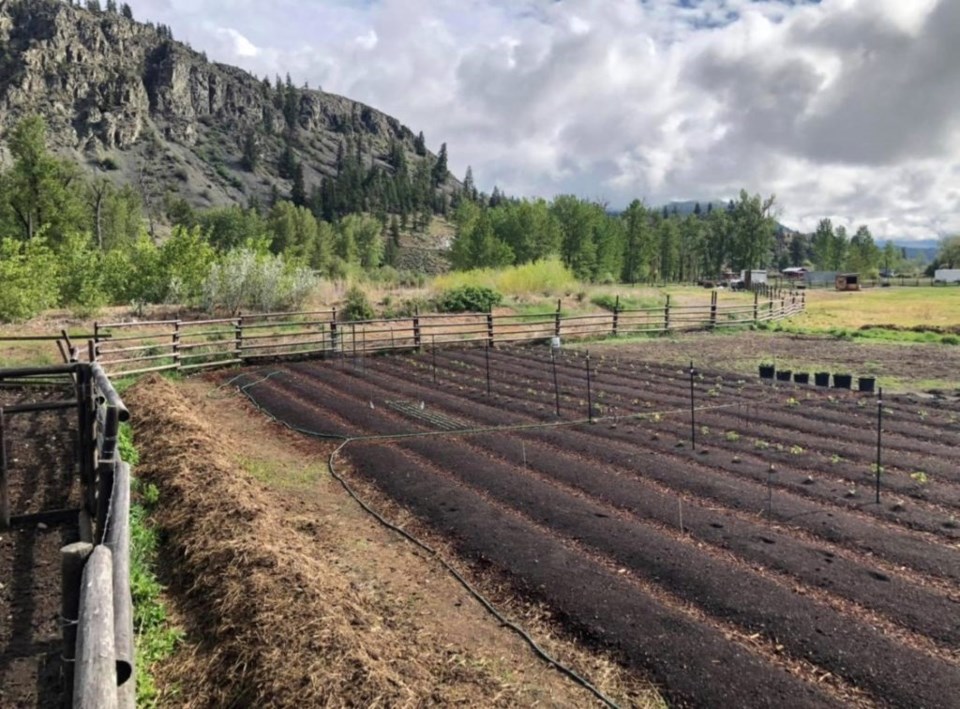Shealynn and Eric MacVicar got their first relief cheque for flood damage to their Nicola Valley farm near Merritt from the Red Cross in January. It was for $2,000.
They estimate there was about $100,000 in damage when the Coldwater River buried their farm under three to four feet of water last November.
“We are getting by on our savings and credit cards and hope,” says Shealynn. “Obviously after something like this happens, a person expects it'll take some time. But you know, we're several months into this.”
Both furnaces for their greenhouses were destroyed and there was structural damage to a barn, their chicken coop and brooder (for chicks). Every harvest tool on the farm was lost.
Fortunately, their home is raised and was not damaged in the mid-November deluge that flooded much of the Fraser Valley, Merritt and Princeton.
More than 1,100 farms were on evacuation order or alert and it is estimated 640,000 farm animals perished. The province says more than 7,500 tonnes of field vegetables and other crops were lost.
Earlier this month, almost three months after the flooding, the federal and provincial governments announced a $228-million recovery fund for agricultural producers.
The MacVicars originally received an email from B.C. Disaster Relief saying they didn’t need to apply for funding because their original claim would transfer over. Then they heard nothing until this week, when Shealynn got a call from the provincial Agriculture Ministry’s Agri-Recovery program saying they will need to make an application.

The program is being launched just as the MacVicars are struggling to repair the seed-starting room they lost and try to stay on track for the upcoming season. They started their seeds last week.
“Right now is when you get started for next season, so that is what you've got to be doing,” she says.
She says she hasn’t been on the phone trying to track down help because, well, there’s work to be done.
“It's only my husband and I doing all the work here. So if I'm in town or in the office calling MLA is I'm not out there, boots on the ground cleaning up,” she says. “I don't have time to be chasing bureaucrats around trying to get answers. Like I said, it’s just the two of us on this farm trying to make it work.”
The province launched an online application portal on Feb. 7 and B.C. Agriculture Minister Lana Popham told reporters there will be interim payments made quickly.
"There are some very desperate situations right now and farmers need cash now," Popham said.
That’s an understatement.
While the provincial government has certainly had an unprecedented number of crises to deal with over the past two years, the support for flooded B.C. farmers and ranchers has fallen far short.
The MacVicars survived the heat dome that punished the province last June only to be evacuated due to wildfires over the summer. Then the floods came.
And they are not alone.
“I haven't had a ton of time to really reach out to too many people but everyone I have spoken with has yet to receive any help or funding,” she says.
Farmers and ranchers in the Merritt area held a rally a few weeks ago to bring some awareness to their plight.

Yet Shealynn is reluctant to complain.
“I guess at the end of the day, there's always somebody out there who has it worse than you. We still have our home and a lot of our friends in town didn't get that lucky,” she says. “But I guess it's still important to talk about it. My husband and I don't have jobs off the farm. This is our livelihood. It's not like it's just a couple of critters and a garden we grow just for fun. It's our job.”
Dene Moore is an award-winning journalist and writer. A news editor and reporter for The Canadian Press news agency for 16 years, Moore is now a freelance journalist living in the South Cariboo.


